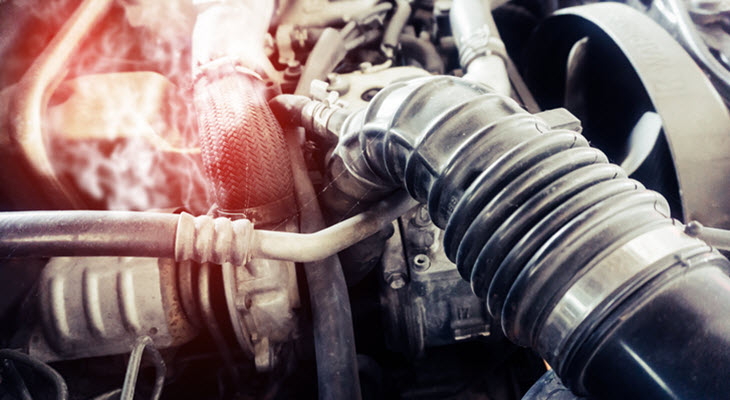


Whether you call it motor oil, engine oil, or just oil, one thing is for certain: oil is essential to all vehicles. Responsible for keeping the moving parts of your engine well lubricated, preventing accelerated part wear, and reducing temperatures caused by friction, there’s a lot to thank your oil for. Dirty or expired oil is not able to work as well, which is one of the many reasons why regular oil changes are so important. Read on to learn more about why you should never neglect this basic aspect of engine care.
To perform at optimum levels, your car’s engine needs to operate free from obstruction. Expired oil can directly contribute to creating deposits of dirt, debris, and broken down oil, known as oil sludge, which can impede your engine’s function. Alongside maintaining your oil filters, changing your oil at regular intervals will help prevent dirt and debris from building up inside your engine.
If your engine is the heart of your car, then the oil is its lifeblood. Because it keeps the moving parts of your engine well-lubricated, it prevents them from grinding against one another. This reduces the rate of part wear, meaning that your engine may benefit from an extended lifespan.
Oil also coats the parts connected to the engine system, such as the crankshaft, and the camshaft, which is responsible for controlling the exhaust valves of your car. Well-maintained oil will help ensure these vital parts are well looked after.
Well-maintained oil can also directly result in good fuel economy. To get the maximum gas mileage that you can, your car engine needs to be in peak health. As we’ve already discovered, good oil flow is essential to this, so if the oil in the engine system is expired, a drop in fuel efficiency can be expected. You’d be surprised at how quickly the cost of more frequent refuelling can outstrip the cost of an oil change!
Whether or not your vehicle passes its required emissions test hinges on the amount of hydrocarbons your car releases as it operates. Failing to change your oil can result in hydrocarbon buildup inside the crankcase. This can result in the hydrocarbons getting burnt up alongside the fuel in the combustion chamber, resulting in them eventually being released through the exhaust pipe. This will cause a high amount of hydrocarbons to be detected in the emissions test, ultimately causing failure.
Towards the end of your oil’s lifespan, the heat from the engine which it is regularly exposed to will cause it to start to break down. This contributes to a loss in viscosity of the oil which leads to a reduction in lubrication. Put simply, old oil becomes its own worst enemy as the deposits it leaves behind prevents it from getting where it needs to. Given enough time, the deposits left behind by old oil can completely block its path around the engine, meaning that vital parts can become dry, causing an increase in heat. These factors combined will result in a noticeable reduction of your car’s overall performance. When you finally change your oil, you will notice your car’s performance increases. Regularly changing your oil will mean that your vehicle’s performance is steadily maintained.
Oil changes are the most common type of routine service your car will likely need, meaning there will probably be times when that’s the only reason you need to come in. That doesn’t mean you should put it off! For all of the reasons listed above and more, it’s important to stay on top of this important piece of maintenance. Ask your preferred service technician when you are due for your next oil change.
When you bring your car to our expert team at Rowlett Motorwerks, also convenient to Garland, Rockwall, Sachse, and Wylie, TX, you’ll be greeted with our 5-star rated service. We’ll use our combined 70 years of automotive experience to change out the oil of your Audi, BMW, Jaguar, Land Rover, Mercedes, Porsche, Volkswagen, or Volvo, and will inspect the overall status of your car as we work. Call or stop by today to schedule your car’s oil change.
